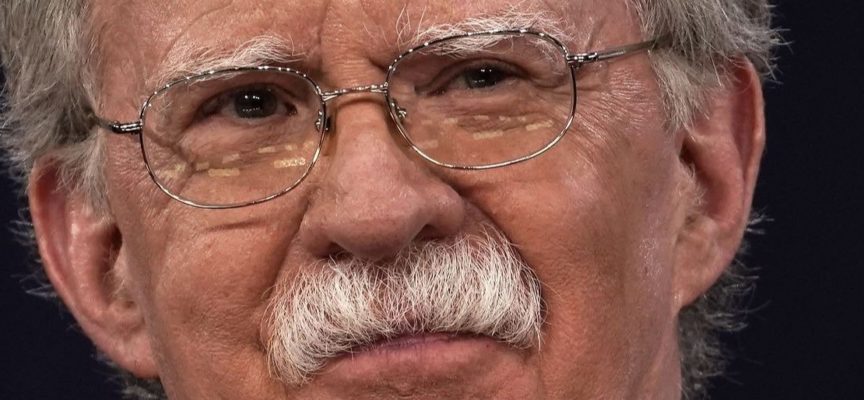This week, John Bolton begins his tenure as National Security Advisor, replacing Army Gen. H. R. McMaster and reshaping an administration that must respond to national security threats across the spectrum.
In response to Bolton’s appointment, some critics have argued we should be alarmed, terrified, and even horrified. In an interview with USA Today, Former President Carter said that Bolton’s appointment is “a disaster for our country.”
Critics point to Bolton’s advocacy of the Iraq War, his recent editorial arguing for the legality of a preventive strike against North Korea, and his long-running support for a preventive war with Iran.
Others have praised Bolton’s appointment, arguing he is a “solid and experienced choice” who is not so dissimilar to McMaster and other mainstream strategists, and whose foreign policy views have already been vindicated in recent days.
In fact, Bolton brings many strengths to the office, such that his tenure could reap historic and positive dividends. His commitment to national security, combined with his ability to think strategically, could strengthen a Presidential administration that needs to build a comprehensive strategy on Russia and China, prevent Iran from obtaining nuclear weapons, and secure the denuclearization of North Korea.
Yet the prerequisites for excellence as a national security adviser are not limited to foreign policy experience and political savvy; they extend also to an ethical framework for determining whether to go to war. Bolton’s tenure will be truly positive only if he adheres to a traditional “just war” framework.
The historical just war tradition is a form of political realism that rejects the idealism of pacifists (who wish to achieve peace by refusing ever to pick up the “sword”) and interventionists (who wish to rid the world of evil or danger by means of the “sword”).
Bolton runs no risk of being seduced by pacifism, but his advocacy of preventive strikes against Iran and Iraq reveals an impulse toward the interventionist variety of idealism. He must resist that impulse and guard our nation against becoming embroiled in preventive wars.
To be clear, a preventive war is different than a pre-emptive one, even though many politicians, military leaders, media outlets, and even ethicists often conflate them. Pre-emptive strikes are justified, but preventive ones are not.
A pre-emptive strike is one in which a nation such as the United States possesses reliable intelligence that an opposing nation has already launched a strike (e.g. that a rocket had been launched but had not yet hit our nation) or has made hard and fast plans to launch a strike against our nation (e.g. that a rocket would soon be launched against our nation). In these instances, the United States is justified in initiating military action, and such action would be considered a pre-emptive strike.
A preventive strike, however, is one in which the United States goes on the offensive to topple political leaders and regimes it considers evil and who it fears might be aggressors toward us or our allies in the future. Under historic just war criteria, a preventive strike is not justifiable.
Yet in a recent article, Mr. Bolton made a legal case for just such a preventive war against North Korea, although he confused the issue by calling an American first strike “pre-emptive” when in reality it would be preventive, given that North Korea has not launched a strike against us and we are not aware of any intelligence proving that North Korea intends to a strike.
Mr. Bolton’s views are not dissimilar from other leaders, Democratic and Republican, who routinely assert “all options are on the table,” including the “military option,” by which is implied an unprovoked preventive war waged by the United States.
Why does the just war tradition historically consider preventive strikes as unjust?
On principle, the just war tradition has considered unprovoked wars inherently immoral. It chooses political realism over idealism, recognizing we can never rid the world of evil or danger. Thus, war is justified only in response to unjust aggression on the part of another nation.
Pragmatically, a nation such as the United States benefits from foregoing preventive strikes. By definition, preventive strikes start wars that might not happen otherwise, open the door for other nations to launch preventive strikes against nations they deem evil or dangerous, encourage other nations to build nuclear arsenals they plan to use against us before we use ours against them, disrupt the international legal order, and increase global resentment of our nation.
Preventive strikes undermine the United States’ global leadership. For generations, America and its allies have argued against preventive wars and punished other nations for launching unprovoked strikes in their own regions. Abraham Lincoln, Ronald Reagan, and Margaret Thatcher are among the most prominent historical opponents of preventive warfare. What does it communicate to the world, therefore, when we launch, or threaten to launch, preventive strikes of our own?
In a recent interview, Bolton spoke approvingly of President Trump for pursuing, as Bolton puts it, “a Reaganite ‘peace through strength’ foreign policy.” Which is fine on Reaganite terms but can be dangerously misinterpreted. Reagan’s “peace through strength” did not include a “peace through preventive war” component. Reagan did not initiate preventive strikes against the Soviet Union or Communist China, both of which are far more formidable than North Korea. He was even willing to rebuke Israel’s preventive war against Iraq as a war crime on the same level as the Soviet Union’s invasion of Afghanistan.
Thus, I believe the Bolton appointment holds great promise—given his genuine commitment to national security, capacity for building comprehensive and coherent strategies for dealing with nations such as Russia and China, and ability to leverage government bureaucracy and national media toward a Reaganite peace through strength policy—if, and only if, he refuses to tilt the Trump administration in an interventionist direction violating just war criteria.
Subscribe
Never miss a post! Have all new posts delivered straight to your inbox.








Given the repeated nuclear threats from North Korea and the multiple threatening missile launches, which endanger our allies South Korea and Japan, as well as US military forces, Guam, Hawaii, and the US west coast, I think you define “pre-emptive strike” much too narrowly.